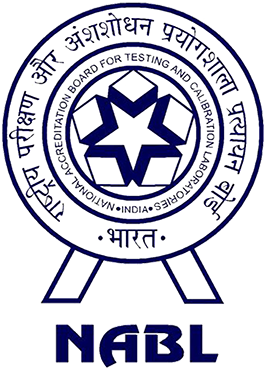T4 - Total Thyroxine
A thyroxine (T4) test measures the level of thyroxine hormone in the blood. Thyroxine, also known as T4, is one of the two main hormones produced by the thyroid gland, the other being triiodothyronine (T3). T4 plays a crucial role in regulating the body's metabolism, influencing processes such as heart rate, body temperature, and energy production.
- **High T4 levels** can indicate hyperthyroidism, where the thyroid gland is overactive, leading to symptoms such as weight loss, rapid heartbeat, and nervousness.
- **Low T4 levels** may suggest hypothyroidism, where the thyroid gland is underactive, causing symptoms like weight gain, fatigue, and cold intolerance.
The T4 test is essential in diagnosing thyroid disorders and monitoring thyroid function. It helps healthcare providers assess whether the thyroid gland is producing the right amount of hormones to maintain metabolic balance and overall health.
A thyroxine (T4) test measures the concentration of thyroxine hormone in the bloodstream, evaluating thyroid function and diagnosing related disorders. Thyroxine is a critical thyroid hormone that regulates metabolism, influencing various bodily functions such as heart rate, body temperature, and energy production.
**Purpose and Types of T4 Tests**:
The T4 test serves multiple purposes in clinical practice:
- **Diagnosis of Thyroid Disorders**: It helps identify conditions such as hyperthyroidism and hypothyroidism. Hyperthyroidism occurs when the thyroid gland produces excessive T4, leading to symptoms like weight loss, rapid heartbeat, and anxiety. Hypothyroidism, on the other hand, results from insufficient T4 production, causing symptoms such as weight gain, fatigue, and cold intolerance.
- **Monitoring Thyroid Function**: The T4 test is crucial in monitoring patients undergoing treatment for thyroid disorders. It helps healthcare providers adjust medication dosages to maintain optimal hormone levels and alleviate symptoms.
There are two primary types of T4 tests:
- **Total T4**: This test measures the total amount of thyroxine in the blood, including both bound to proteins (albumin and thyroxine-binding globulin) and free (unbound). Most T4 in the bloodstream is bound to proteins, while a small fraction is free and active. Total T4 levels can be affected by changes in protein levels.
- **Free T4**: This test measures only the free, unbound T4 hormone, which represents the biologically active form of thyroxine. Free T4 levels are more reflective of thyroid function because they are not influenced by variations in protein levels.
**Clinical Significance**:
The interpretation of T4 test results depends on whether total or free T4 is measured. Elevated T4 levels often indicate hyperthyroidism, while decreased levels suggest hypothyroidism. These findings guide healthcare providers in diagnosing thyroid disorders, determining appropriate treatment strategies, and monitoring patients' responses to therapy.
In conclusion, the T4 test is a fundamental tool in assessing thyroid health, providing valuable insights into thyroid hormone production and metabolic regulation. It plays a crucial role in diagnosing thyroid disorders and ensuring effective management to optimize patient well-being.
We provide blood tests in Noida, Gurgaon,
Faridabad,
Delhi,
Indirapuram, Ghaziabad, Greater Noida, and Greater Noida Extension(west).
















